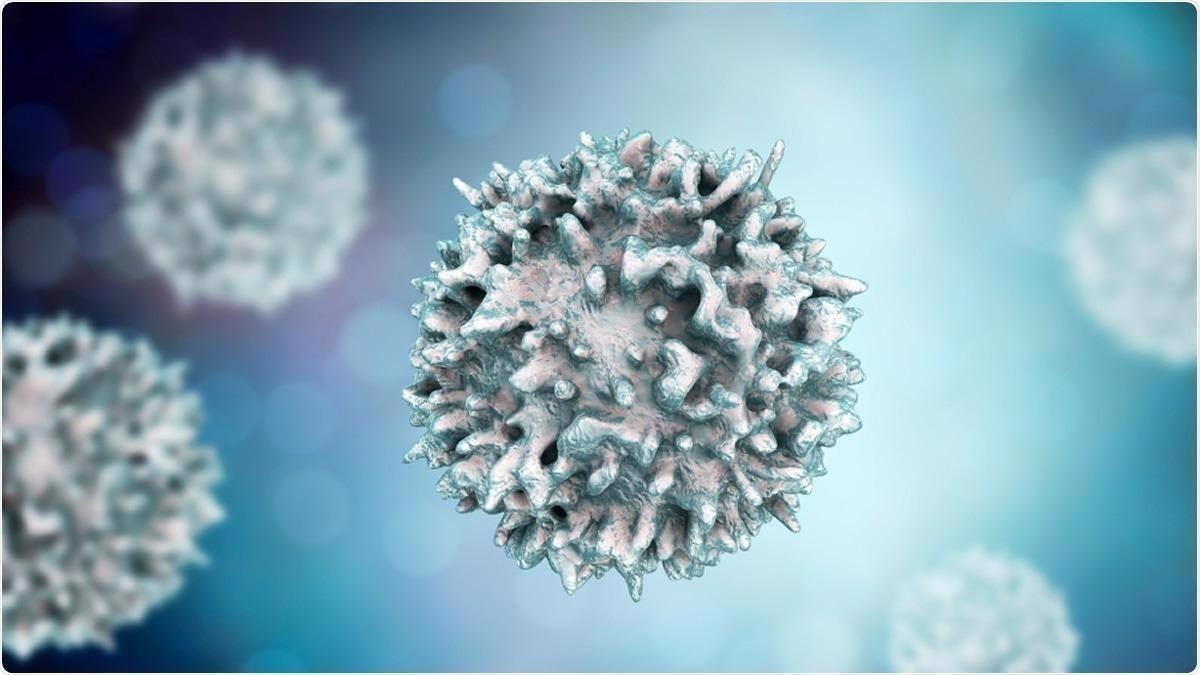A team of scientists from the United States has recently demonstrated that current coronavirus disease 2019 (COVID-19) vaccines induce robust spike-specific T cell responses against the Omicron variant of severe acute respiratory syndrome coronavirus 2 (SARS-CoV-2).
Despite a significant reduction in vaccine-induced humoral immune response, a robust cellular response is sufficient to prevent severe infections by the Omicron variant.
The research is currently released as an unedited manuscript prior to publication in the journal Nature.

Study: Vaccines Elicit Highly Conserved Cellular Immunity to SARS-CoV-2 Omicron. Image Credit: Kateryna Kon / Shutterstock
Background
Studies conducted in real-world setups to investigate the vaccine efficacy against emerging SARS-CoV-2 variants have revealed that the Omicron variant is highly capable of evading vaccine-induced immunity. The heavily mutated genome with 15 mutations specifically in the spike protein is responsible for the significantly improved immune fitness of the Omicron variant. The variant has also been shown to have high transmissibility, justifying its rapid dominance over the previously circulating Delta variant.
Currently, the Omicron variant has been detected in more than 90 countries worldwide. Soon after its emergence in South Africa in November 2021, the variant has caused a sharp increase in new COVID-19 cases, including vaccine breakthrough cases, globally. However, despite a high infection rate, Omicron infections are primarily associated with much lower morbidity and mortality compared to Delta infections.
In the current study, scientists have investigated the cross-reactivity of vaccine-induced spike-specific T cell responses against the Omicron variant. A robust cellular immunity developed against a specific antigen is known to protect against severe disease.
Study design
The vaccine-induced cellular immunity against the Omicron variant was evaluated by assessing spike-specific CD4+ and CD8+ T cell responses in 47 participants. None of the participants had a history of SARS-CoV-2 infection, and all had negative antibody responses to SARS-CoV-2 nucleocapsid.
Of all participants, 20 received the adenoviral vector-based COVID-19 vaccine developed by Johnson & Johnson (Ad26.COV2.S), and 27 received the mRNA-based COVID-19 vaccine developed by Pfizer/BioNTech (BNT162b2).
Antibody-mediated immune responses
The participants who received the Pfizer vaccine showed robust neutralizing titers against the wild-type SARS-CoV-2 one month after immunization. However, a sharp reduction in titer was observed by month 8. Compared to Pfizer vaccine recipients, the Johnson & Johnson vaccine recipients showed significantly lower neutralizing antibody response at month 1. In these participants, the titers were durable and remained elevated at month 8.
Regarding the Omicron variant, both vaccine recipients showed significantly lower levels of cross-reactive neutralizing antibodies. A similar trend was also observed for binding antibodies targeting the spike receptor-binding domain (RBD) of SARS-CoV-2. These antibodies showed minimal cross-reactivity against the Omicron variant in all participants.
Cellular immune responses
Cellular immune responses induced by COVID-19 vaccines showed significant cross-reactivity against the Omicron variant. This is completely opposite to that observed for vaccine-induced antibody response.
Both Pfizer and Johnson & Johnson vaccine recipients showed robust spike-specific interferon-gamma-secreting CD8+ and CD4+ T cell responses against the wild-type SARS-CoV-2 and Delta and Omicron variants even after 8 months of vaccination. A similar trend was also observed for spike-specific, tumor necrosis factor-alpha and interleukin-2 secreting T cell responses.
Specifically, the analysis revealed that vaccine-induced Omicron spike-specific CD8+ T cell responses are 82 – 84% of the wild-type spike-specific CD8+ T cell responses. Similarly, Omicron spike-specific CD4+ T cell responses were found to be 82 – 100% of the wild-type spike-specific CD4+ T cell responses. In contrast, only negligible spike-specific T cell response was observed in unvaccinated participants.
For both Pfizer and Johnson & Johnson vaccine recipients, a significant correlation was observed between the Omicron spike-specific and wild-type spike-specific CD8+ and CD4+ T cell responses. Only two recipients of the Pfizer vaccine failed to show Omicron spike-specific CD8+ T cell response.
Furthermore, the Johnson & Johnson vaccine-induced spike-specific CD4+ and CD8+ T cell central memory and effector memory subpopulations showed significant cross-reactivity against the Delta and Omicron variants.
Study significance
The study findings indicate that cellular immune responses induced by current COVID-19 vaccines can provide considerable protection against severe Omicron infections, despite a significant reduction in neutralizing antibody response.